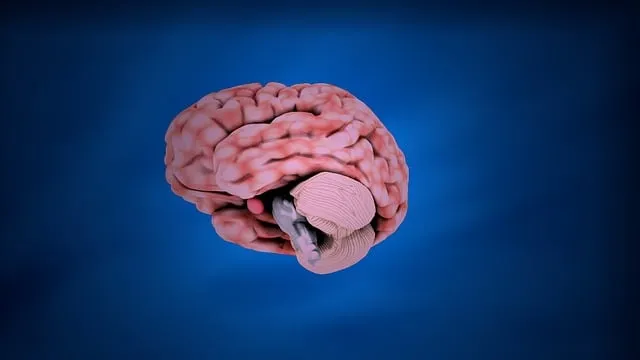Community outreach programs initiated by the Longmont Kaiser Permanente (LKP) mental health department are crucial for enhancing mental wellness across diverse populations by tackling access barriers. These programs, through tailored services and cultural sensitivity, increase participation and intervention effectiveness. LKP's commitment to mental health awareness and community engagement ensures residents have access to necessary support. Measuring impact using KPIs, survey data, and medical records helps refine strategies, fostering a healthier, more resilient Longmont community. The LKP mental health department's innovative programs and initiatives contribute significantly to the region's mental health landscape.
Community outreach programs play a pivotal role in enhancing mental health initiatives, offering direct support and education. This article delves into the significance of such programs, highlighting successful examples like the Longmont Kaiser Permanente Mental Health Department, which has reached over 2000 individuals with tailored services. We explore strategies for effective implementation, including community engagement, addressing challenges, and provide a framework for evaluating impact, focusing on measurable outcomes in mental health promotion efforts.
- Understanding Community Outreach Programs: Their Role and Benefits for Mental Health Initiatives
- Longmont Kaiser Permanente Mental Health Department: A Local Focus on Wellness
- Strategies for Successful Program Implementation: Engaging the Community and Overcoming Challenges
- Measuring Impact: Evaluating the Success of Community Outreach in Mental Health Promotion
Understanding Community Outreach Programs: Their Role and Benefits for Mental Health Initiatives

Community outreach programs play a pivotal role in enhancing mental health initiatives by bridging the gap between healthcare services and communities that may face barriers to access. These programs, such as those implemented by Longmont Kaiser Permanente’s mental health department, serve as powerful tools for improving overall mental wellness within diverse populations. By reaching individuals where they are, whether in schools, community centers, or faith-based organizations, these initiatives ensure that support and resources are accessible to all, regardless of socioeconomic status or cultural backgrounds.
One of the key benefits lies in fostering cultural competency among healthcare providers. Through targeted outreach, mental health professionals can offer tailored services that respect and incorporate cultural nuances, boosting confidence among participants. This personalized approach not only encourages individuals to seek help but also enhances the effectiveness of interventions, ensuring that mental wellness initiatives resonate with and benefit the specific communities they aim to serve.
Longmont Kaiser Permanente Mental Health Department: A Local Focus on Wellness

The Longmont Kaiser Permanente Mental Health Department stands as a beacon of hope and healing within the community, dedicated to improving mental wellness through innovative programs and services. With a strong local focus, this department recognizes the unique needs of its diverse population and tailors its approach accordingly. By prioritizing Mental Health Awareness, they foster an environment that encourages open conversations about mental health, breaking down stigma and promoting positive thinking.
The team at Longmont Kaiser Permanente incorporates Cultural Sensitivity in Mental Healthcare Practice, ensuring that their services are accessible and inclusive for all. They understand the impact of cultural backgrounds on mental health experiences and deliver care that respects and embraces these differences. Through community outreach programs, they actively engage with local residents, schools, and organizations, providing education, support, and resources to enhance overall well-being.
Strategies for Successful Program Implementation: Engaging the Community and Overcoming Challenges

Engaging the community is a cornerstone of successful Community Outreach Program Implementation. Organizations like the Longmont Kaiser Permanente mental health department can foster strong connections by understanding local needs and cultural contexts. Active listening, conducting surveys, and organizing focus groups are effective strategies to gather insights from residents, ensuring programs align with their priorities. Tailoring initiatives to address specific challenges, such as stress management or youth resilience, through relevant activities like mental wellness journaling exercises guidance, can significantly enhance community buy-in and participation rates.
While implementing these outreach programs, challenges are inevitable. Overcoming barriers requires adaptability and persistence. One common hurdle is reaching underserved populations; this can be tackled by employing creative communication methods, partnering with local community leaders, and utilizing technology to broaden access. Another challenge lies in maintaining consistent engagement; offering diverse program options catering to different age groups and interests, as well as providing ongoing support and incentives, can foster sustained participation and promote positive thinking and mental wellness.
Measuring Impact: Evaluating the Success of Community Outreach in Mental Health Promotion

Measuring impact is a crucial aspect of evaluating the success of community outreach programs in mental health promotion. Organizations like Longmont Kaiser Permanente’s mental health department use a multi-faceted approach to assess the effectiveness of their initiatives. They track key performance indicators (KPIs) such as the number of individuals reached through these programs, their satisfaction levels, and changes in mental health outcomes. By analyzing data collected through surveys, interviews, and medical records, they can gauge the impact on depression prevention and overall mental wellness.
The Longmont Kaiser Permanente mental health department also integrates feedback from participants to refine and improve their Community Outreach Program Implementation strategies. This continuous evaluation ensures that the Mental Wellness Journaling Exercise Guidance remains relevant and tailored to the specific needs of the community. By focusing on both quantitative and qualitative measures, they aim to enhance the reach and impact of these programs, fostering a healthier and more resilient community.
Community outreach programs, as exemplified by the successful initiatives at the Longmont Kaiser Permanente Mental Health Department, play a pivotal role in enhancing mental well-being. By engaging directly with communities, these programs address barriers to care and promote accessible mental health support. The implementation strategies outlined, along with robust evaluation methods, ensure that such outreach is effective and impactful. With consistent effort and community collaboration, we can continue to revolutionize mental healthcare access, benefiting the number of individuals served by organizations like Longmont Kaiser Permanente.






